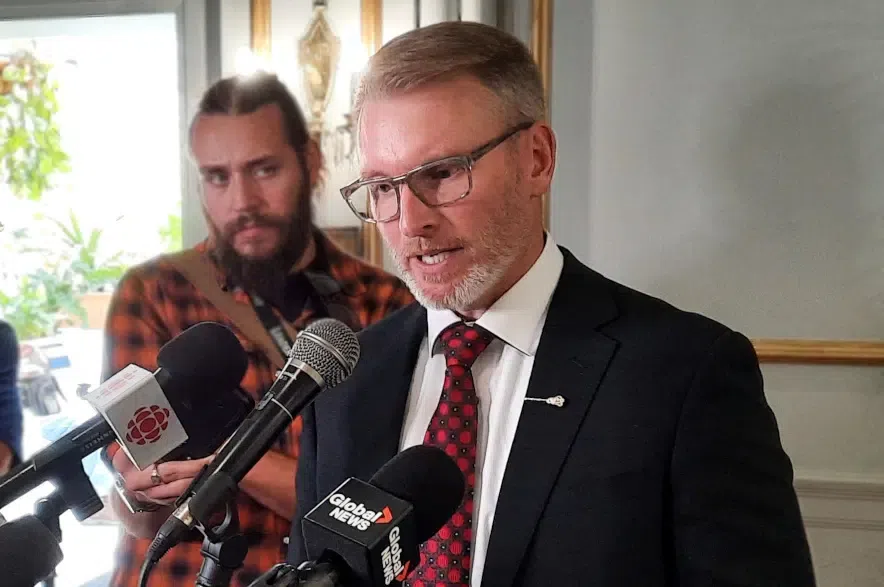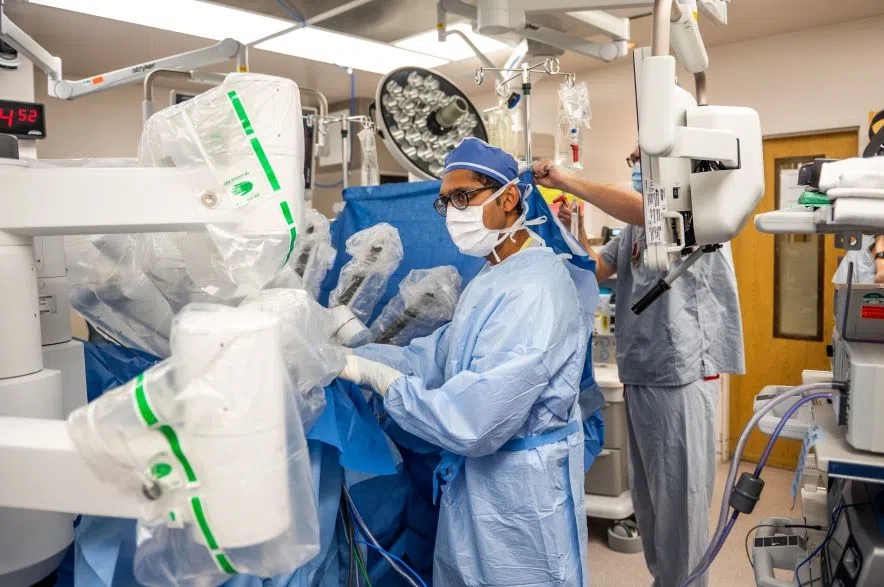Saskatchewan’s minister of health doesn’t think the province is seeing a crisis in health care.
Everett Hindley said he does, however, believe there are some problems to fix within the system, both across Canada and in Saskatchewan.
“There are some challenges that we face in health care when it comes to recruitment and retention and training of health-care workers and just overall improvement to the health-care system,” Hindley told Evan Bray on Wednesday.
The minister said he thinks there are more demands on the system than ever before.
Citing the pandemic years, the province’s aging and growing population and Saskatchewan’s aging workforce, Hindley said there are more people using the system and the province is working hard to try and find the staff and resources to meet the growing demand.
He said conversations with other health ministers from across Canada have shown that Saskatchewan is not the only province dealing with those challenges.
“I think we’re each trying to learn from each other and figure out how to best address this, and do that as quickly as possible,” he said.
While he wouldn’t call the current state of health care in Saskatchewan a crisis, Hindley did say some of the issues in the system are “frankly not acceptable” for patients.

Sask. nurses walk down 20th Street in Saskatoon, calling for more hospital staff and safer working conditions. (Mia Holowaychuk/650 CKOM)
Hindley emphasized the importance of his own conversations with people working in health care, from Saskatchewan Health Authority CEO Andrew Will to public-facing workers and patients.
Noting problems like long waits for diagnostic appointments, surgeries, emergency room visits and appointments with family doctors, Hindley said the Ministry of Health is trying to take steps that will bring about both short- and long-term changes in Saskatchewan’s health system.
One solution, which Hindley said the province has already been working towards, is making Saskatchewan a place health-care workers want to stay in. He said the province is working to put its best foot forward when it comes to recruiting, retaining and training more workers.
Hindley mentioned the 550 new seats the province has added through a partnership with the Ministry of Advanced Education to train more students intending to pursue careers in health care.
Further, Hindley said the province is trying to make sure students coming out of Saskatchewan schools are given every option to start their career in the province. The minister called that “critical.”

Health Minister Everett Hindley says Saskatchewan has some issues with health care, but stopped short of saying the system is in crisis. (650 CKOM file photo)
According to Hindley, recruitment efforts brought 900 nurses to Saskatchewan last year, partly as a result of the province’s recruitment outreach in the Philippines.
Hindley also spoke about making the system work better for those already employed. He said contract negotiations are currently ongoing for a variety of health-care providers, including nurses and family physicians.
He noted the transitional pay model that is being worked on presently to compensate doctors dealing with increased expenses while the province also looks to implement a blended-capitation model, which would see family doctors compensated based on the number of patients they care for and the types of services they provide.
Hindley said that model is one the Saskatchewan Medical Association has been advocating for. He highlighted the need to ensure doctors in Saskatchewan are compensated fairly when compared to other provinces.
“Ultimately, we want to make sure that we’re properly staffed here, not just for the numbers that we’re facing right now,” Hindley told Bray when asked about the long waits for mammograms and other diagnostic services.
The health minister said the long-term solution to reduce those waits is to have the proper technology and staffing for cancer care in the province. While he said the Saskatchewan Cancer Agency is doing a phenomenal job, he noted that there is a shortage of trained breast radiologists in the province and said recruitment to bring more radiologists to Regina has been happening over the past several months.
Hindley said some patients waiting for diagnostic services also have the option to travel to Calgary for diagnosis, thanks to a partnership between the provinces.
READ MORE:
- Health authority recruiting staff in Saskatoon to help struggling hospitals
- ‘A constant worry’: Family frustrated over health-care wait times
- P.A. man calls out Sask. health-care system after wife dies from toe infection
“I just think we’re going to see more and more people that are going to be requiring service in the years ahead,” Hindley predicted, noting that he doesn’t want to just see the immediate gaps in the system filled, but wants to build a better overall system to handle the increased load.
Bray brought up an Angus Reid poll from Tuesday that found health was one of the top three issues in Saskatchewan, with 68 per cent of respondents calling the provincial response poor or very poor.
Hindley said he believes similar numbers are being noted across the country.
“Health care is a priority for people,” he told Bray, “more so than perhaps ever before.”
The minister said the results of the poll mean the government still has work to do.
With Saskatchewan just one of many provinces and jurisdictions in Canada vying for limited resources, Hindley said it means constant innovation is required in order to find “creative solutions” for the system.
“(We) have to continue to work at this to improve health care for the people we represent,” Hindley said.
The full interview with Hindley can be heard below.











